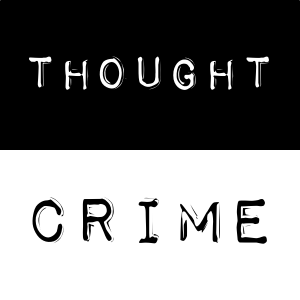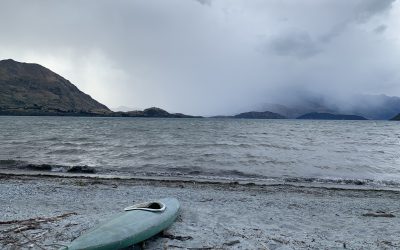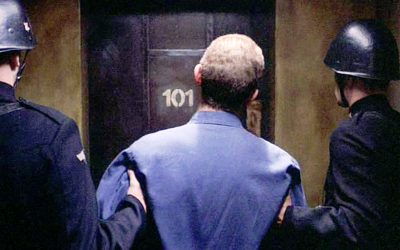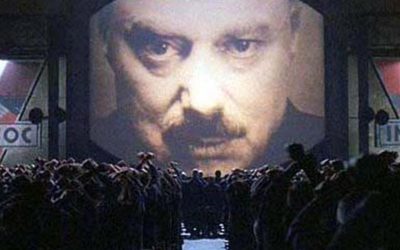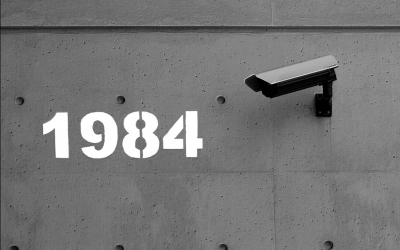Wednesday 25 March: Calm in the Storm
This is the first of our daily lesson outlines, now that we’re all working remotely. Today let’s take things quietly with a quick checkin online and then some time to read independently.
Task: Select a Quotation and expand on its effect.
In spite of being the author of the quotation "Good prose should be transparent, like a window pane." Orwell's writing is rich with grammatical complexity and textured imagery. After I provided and explained an exemplar of how to approach the use of a quotation -...
Nineteen Eighty-Four: How to handle a quotation
An exemplar demonstrating one way of producing the analysis required in relation to any self-selected quotation from the text.
Novel Study: Nineteen Eighty-Four by George Orwell
NCEA 3.1: Respond critically to specified aspect(s) of studied written text(s), supported by evidence
The Grammar of Satire – School, by Thabit Choudhury
School. It’s an amazing thing. There’s nothing a 15-year-old boy loves more than getting up at 6:30, eager to educate himself.
Grammar of Satire – Writing Task
After our short study of the Grammar of Satire, it's time to have a go at writing a satirical piece in your own right. Here are some suggestions as to how you might get going: Read more satire - be inspired by the work of others, and explore the technical frameworks...
Grammar of Satire – Trident, by Frankie Boyle
I wrote a joke the other day, along the lines of: “Our greatest fear is that we die alone – which is why I intend to take quite a few people with me.”
Grammar of Satire – A Postcard from Russia
The most exciting way of getting into Russia is to cross Germany in a sealed train and arrive at the Finland Station in St Petersburg to be greeted by a cheering revolutionary mob who promptly rename the city after you.
The Grammar of Satire – Advice to Youth
This language project forms an investigation into the underlying grammar of satirical writing. We'll be exploring satirical work covering three centuries of social criticism and the project will culminate in your writing of your own piece of social satire. First Text:...
What is Satire?
Some examples of political and social satire to get the conversation started
Thoughtcrime Podcast
Listen to this course's companion podcast to help make sense of everything you find published here
Course Content
Choosing Thoughtcrime as your English programme for Level 3 means that, you probably find the darker, more dystopian aspects of world literature attractive; you’re somehow inexorably drawn to the unusual and deep down you sense that something is rotten in the state of… This programme will take a media-savvy journalistic approach. You’ll need to think fast, question everything and be willing to speak up. You will be asked to challenge yourself, take risks and show ambition.
We’ll be reading the work of some of the 20th Century’s greatest satirists, poets and activists. We’ll explore modern text communication, political and online language and compare this with our own speech to learn how the wool can be so easily pulled over our eyes. We’ll look at the grammar and style of a range of journalistic writing and publish our own. We’ll explore how our very language itself can control our thoughts and – if we’re not careful – limit our freedom. We’ll read one of the 20th Centuries most disturbing political novels, George Orwell’s Nineteen Eighty Four and explore modern anti-heroes such as Donnie Darko and A Clockwork Orange’s Alex De Large. Throughout, you will be practising the key skills required to succeed in your NCEA programme.
In parallel to this everyone will be completing for homework their own longitudinal genre inquiry by investigating links between self-selected books, films and art and presenting these in documentary form.
Political language. . . is designed to make lies sound truthful and murder respectable, and to give an appearance of solidity to pure wind.
GEORGE ORWELL
